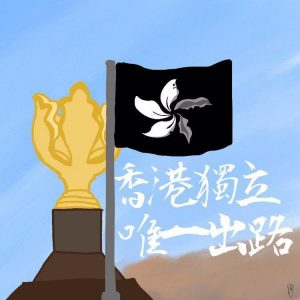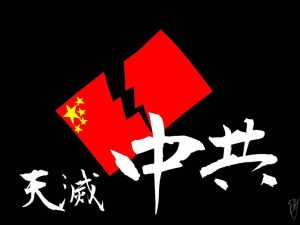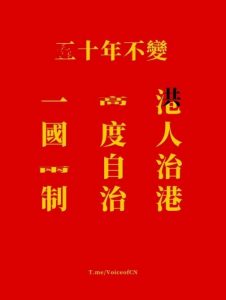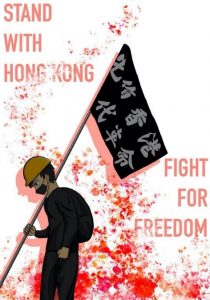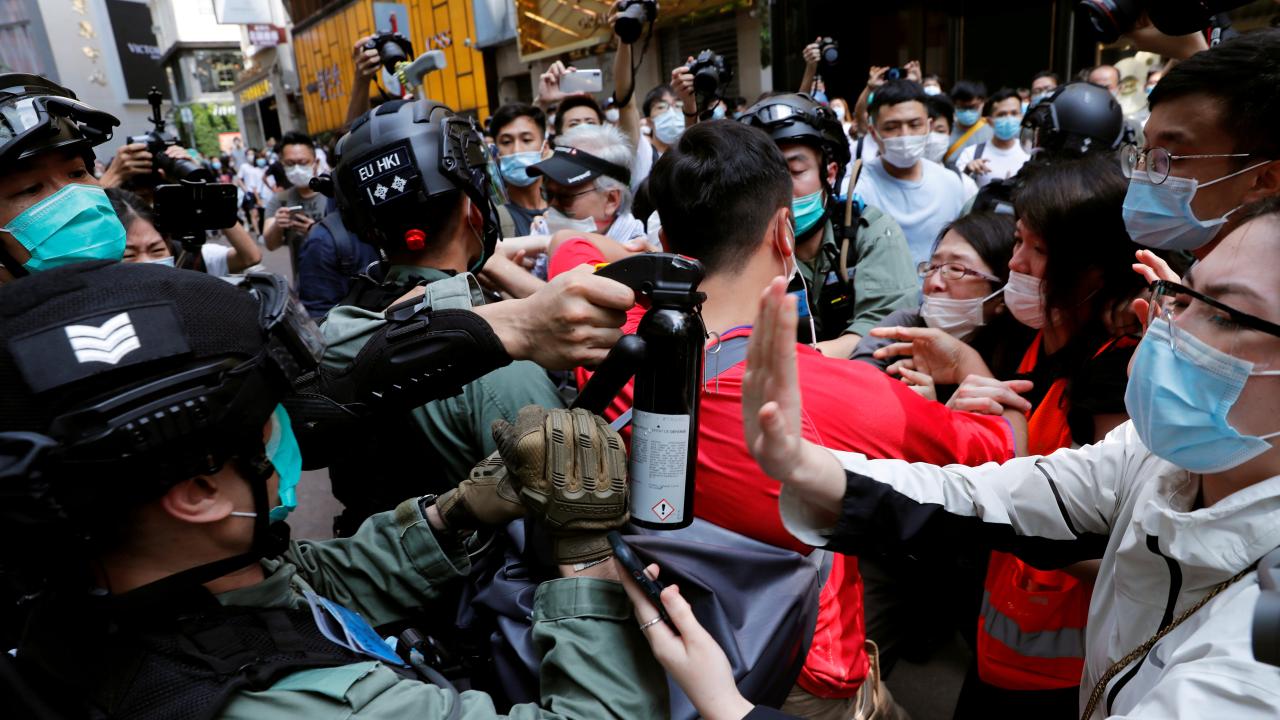
The past week has seen China hold its annual rubber stamp parliament, the National People’s Congress, the NPC. Delayed by two months, shortened by one week from the usual two, and held in Beijing under tight restrictions the eyes of the world have instead been on Hong Kong. As the NPC opened it was announced it was going to pass a national security law, NSL, for Hong Kong. The law would seek to prohibit acts and activities of four things, secession, subversion, terrorism or conspiring with foreign influences.
Although the NPC has passed the resolution the actual details of the law and how it will be implemented in practice are far from clear. Yet there are many reasons to be concerned, perhaps the most worrying one from the NPC is from article 4 which states,
“that the HKSAR must establish and improve the institutions and enforcement mechanisms for safeguarding national security; when needed, relevant national security organs of the Central People’s Government will set up agencies in the HKSAR to fulfill relevant duties to safeguard national security in accordance with the law;”
This reads, and it has been confirmed by the Hong Kong Government, that PRC security organs, in some as yet unconfirmed framework will work directly in Hong Kong alongside the HK Police Force to implement the NSL. Some have suggested that the now disbanded Special Branch of the HK Police, modelled on the UK Special Branch could be reconstituted, although given China’s historical record of human rights abuses and disregard for its own constitution the Gestapo would perhaps be a more appropriate reference.
This action confirmed that Beijing has lost patience with Hong Kong and would now not even bother to abide by the One Country Two Systems framework and instead issue laws directly effectively overriding Hong Kong’s own legislature. Article 23 of the Basic Law states that Hong Kong will enact on its own legislation to address national security concerns. The attempt to do that in 2003 led to the first mass march of over 500,000 residents and the legislation was shelved.
Fast forward 16 years to last year. Beijing was furious with the mass protests held last year and the inability of the HK authorities to rein in the worst of the violent protests. But more than anything the District Council elections of November which saw the protest and democracy candidates win a landslide in terms of councils and seats completely surprised the leaders in Beijing. Beijing doesn’t object to elections as long as they know the result in advance. This time their local eyes and ears on the ground completely let them down.
Earlier this year, even as the virus spread in China, both the heads of the China Liaison Office (CLO), the de facto PRC embassy in Hong Kong, and the Hong Kong Macau Affairs Office were replaced by Xi loyalists with no ties to Hong Kong and its politicians and business elites. Xi was signaling a tougher line, and it has come.
Just last month saw the Hong Kong Government scrabble to clarify comments made regarding the ability of the CLO to interfere in the running of Hong Kong affairs. Since the handover PRC government departments were legally required to stay out of Hong Kong affairs. Statements by the CLO claimed they were not bound by such restrictions and never had been.
April also saw the arrest of 15 leading pro-democracy leaders including democracy veteran Martin Lee, now 81, for organizing and attending an unlawful assembly. Last’s years protests were not the work of the old guard of pro-democracy campaigners. It was very much the work of a new generation of Hongkongers but this list is only the start for Beijing.
Those moves though were only a warmup to the NPC ruling of the past week. The move by the NPC is seen a near fatal blow to the legitimacy of the One Country Two Systems formula. As soon as it was announced a procession of leaders and pro-Beijing business people took to the airwaves and media outlets to assure Hongkongers they had nothing to fear. Wang Yi the Chinese foreign minister started the show at the NPC and was then followed by numerous Hong Kong officials from Carrie Lam down. All parroted the same message trying to quell disquiet about the new bill but there is little reason to believe them. Allan Zeman, a prominent Hong Kong businessman appeared on Bloomberg TV telling residents to have faith in the government. He casually ignored questions about China current abusive rights record under Xi Jinping much to the clear disgust of the interviewer.
Despised former Hong Kong Chief Executive CY Leung could not discount the annual June 4 memorial event being permanently cancelled under the new law but when pressed he said he didn’t want to get into the nitty gritty for fear it may frighten the public.
The exact details have still to be put in place, yet what is known is Beijing’s approach to these “crimes” within the PRC proper. Subversion is a term which the CCP uses broadly and should concern everybody in Hong Kong, local and expat. Within the Mainland, lawyers, artists, academics and writers have been persecuted for simply disagreeing with the Party and asking its rulers to follow China’s own constitution.
Beijing supporters say that only a tiny minority will be targeted by the bill. They clearly have individuals in mind, perhaps the 15 arrested democrats are the first batch. Then of course come the young generation of activities like Joshua Wong or Andy Chan founder of the Hong Kong National Party. How many others?
At anti-government protests it has been common to see the old colonial flag or the US flag being waved or a banner calling for Hong Kong independence. Will such things land you in jail later this year? What about penning an article criticizing the CCP? A fictional work describing a Hong Kong which was granted independence from Great Britain instead of being handed back to China? Will the flourishing online source of anti-CCP or pro-HK graphics become illegal?
Will images like these be consider subversion in Hong Kong after the passage of the new law? If they are stored on your phone or PC could you be considered a separatist?
Beijing and the HK Government claim that this new NSL is needed to calm the city after the protests of last year. 6 months of near weekly and at times daily protests without question took their toll on the city yet none of the violence, arson, vandalism or illegal assembly seen last year can’t already be dealt with under the existing laws of Hong Kong. The protest movement of Hong Kong made many mistakes yet the chaos of last year can be explained by four broad issues, 1/ failure of HK Government to engage with the real concerns and worries of the (broad) protest movement, 2/ overzealous policing at times becoming thuggery, 3/ poor policing tactics and strategy to stop small incidents becoming major ones, and 4/ the police brutality begetting a cycle of protest to protest the police brutality. The new law will address none of these issues. Instead this law is coming to clamp down on what Hongkongers think, read, write and believe.
The importance of the legislation now is likely connected to the September Legco elections. The democracy camp has made a concerted effort to get voters registered for that election and hopes to repeat the success of last November’s District Council elections. That will have Beijing worried and by bringing in the law before then it is very possible it will be used to facilitate the disqualification of candidates which Beijing disapproves of. At present the Legco is discussing another piece of PRC legislation, the National Anthem Bill, which will criminalize disrespecting the PRC national anthem. It had been stalled by pro-democracy lawmakers but the pro-government camp has literally bullied their way back into controlling proceedings and will certainly pass any NSL which is placed before them.
The harsh reality of the situation is that the Free World is largely powerless to stop China enacting and pursuing this path. China via the NPC and with the support of the Hong Kong Government are basically able to bring in such legislation. There are doubts as to whether it is fully in line with the Basic Law yet there simply is no mechanism to stop it.
But there are consequences of this decision. The protests of last year saw the US Congress pass the HK Human Rights and Democracy Act which requires yearly certification by the State Dept. of Hong Kong’s clear autonomy from China. In reaction to the NPC passing the NSL Secretary of State Pompeo has refused to certify Hong Kong’s autonomy which will in all likelihood lead to specific sanctions from the President. For an already dreadful US China relationship the events of the past week have pushed both sides even further apart.
Canada, the UK, Australia joined with the US to provide a joint statement reflecting their deep concern over the NPC decision, hopefully the start of a more combined and construction response the turn of events. Lord Patten, the last colonial Governor of Hong Kong has led a group of over 600 parliamentarians in condemning Beijing actions. All agree that by taking this course of action Beijing has seriously undermined the One Country Two Systems framework which is implicit in the Sino-British Joint Declaration registered with the United Nations. Before the handover Beijing campaigned to have the Declaration accepted by the member nations and with the key commitment that Hong Kong’s autonomy would be preserved for a minimum of fifty years.
Britain, as the ex-colonial power and signatory to the Joint Declaration has a special role to play. At the time of the handover it had issued British National Overseas (BNO) passports to a section of the Hong Kong community. These fall short of full British national status and provide no right of abode in Britain. In a surprise move the UK government is going to extend the visiting rights of those passports and provide an accelerated path to citizenship.
Taiwan announced it will provide help and support for Hong Kong residents looking to leave the city. For other nations to follow Taiwan would be an important step as well but facilitating migration from the city does little to maintain Hong Kong’s unique status.
It is tempting perhaps for some leaders to lash out at China by targeting Hong Kong’s special trading status which allows it to operate on different terms from the Mainland. China will lose the advantages that Hong Kong brings but that penalizes Hong Kong residents more than it does Beijing. There are no easy or painless choices available. Beijing has shown that it is willing to risk that special trading status and implicitly shown it is prepared to accept further violence and even bloodshed to bring order, as it defines it, to Hong Kong. As the protest movement has long cried, the One Country is far more important to Beijing than the Two Systems.
As the world is reeling from the Covid19 pandemic Xi Jinping has decided to press further not just in Hong Kong but with further aggressive in the South China Sea, military incursions into India and bullying of trade partners. He must hope the world is too distracted and fearful in the wake of the virus to try and push back against his ambitions. It is for the world to show that he is wrong.
In 2003 Hong Kong was severely hit by SARS, 1,755 cases and 299 deaths, yet a 500,000-person protest was able to stop the passage of national security legislation. 17 years on, the scenario is inverted. Hong Kong has been a model of handling Covid19 with less than 1,100 cases and only 4 deaths so far, yet they have been unable to avoid the new NSL, even though over 1 million peacefully protested against Beijing encroachment last year.
Hong Kong residents may have escaped the worst of the virus, but the city has become a victim of the Covid19 era. Xi Jinping would likely have acted with or without the virus, the fear of defeat in the Legco elections would have been too worrying a prospect but his rejection of the commitments made in the Joint Declaration demand a coordinated response from the Free World. The people of Hong Kong deserve the autonomy they were promised.
カテゴリー
最近の投稿
- 習近平の思惑_その1 「対高市エール投稿」により対中ディールで失点し、習近平に譲歩するトランプ
- 記憶に残る1月
- 高市圧勝、中国の反応とトランプの絶賛に潜む危機
- 戦わずに中国をいなす:米国の戦略転換と台湾の安全保障を巡るジレンマ
- トランプ「習近平との春節電話会談で蜜月演出」し、高市政権誕生にはエール 日本を対中ディールの材料に?
- A January to Remember
- Managing China Without War: The U.S. Strategic Turn and Taiwan’s Security Dilemma
- 「世界の真ん中で咲き誇る高市外交」今やいずこ? 世界が震撼する財政悪化震源地「サナエ・ショック」
- 中国の中央軍事委員会要人失脚は何を物語るのか?
- 個人の人気で裏金議員を復活させ党内派閥を作る解散か? しかし高市政権である限り習近平の日本叩きは続く

